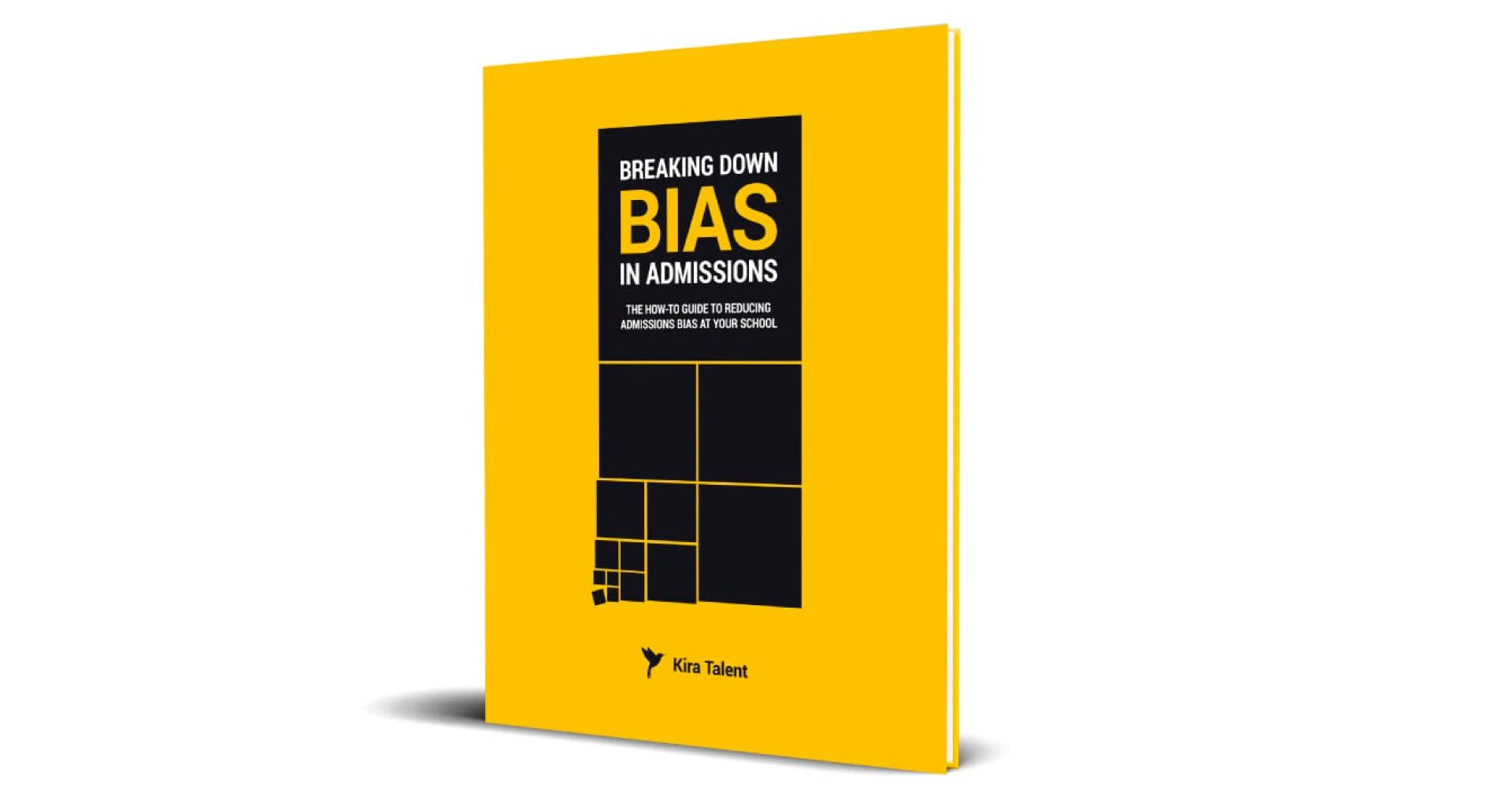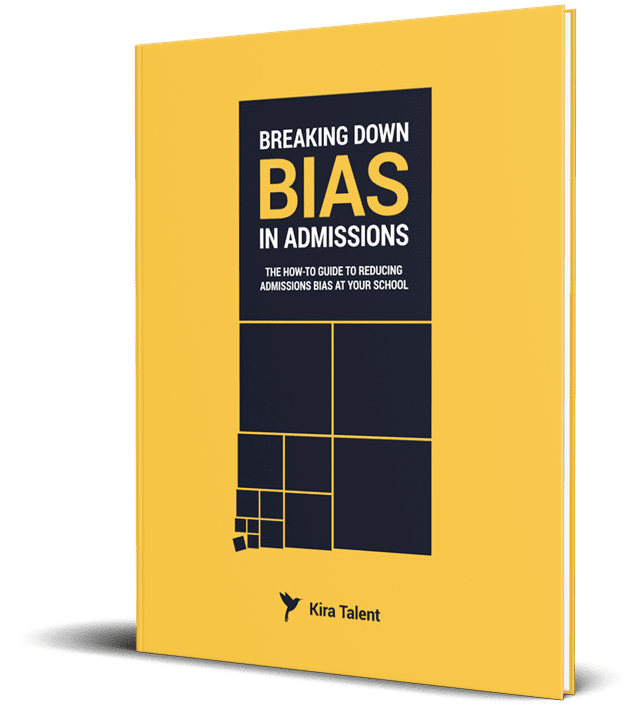Meredith Twombly is the Dean of Enrollment and Retention at Hampshire College, a small, liberal arts college with big ideas about challenging and changing the existing admissions process for their applicants.
Hampshire proudly offers an authentic, applicant-first experience designed to help their applicants succeed based on their unique strengths and personalities. One traditional criterion they’ve eliminated from their application entirely: The standardized test.
Twombly and her team found that their internal data showed no correlation between success on standardized tests and actual success in the classroom. They made the choice to eliminate standardized tests and focus more on the student’s story. The move has not only brought attention to the school’s innovative administration but has also impressed their faculty members with the improved quality of students entering their classroom.
 Twombly joined us for a Q&A about the impact of this change at Hampshire, her vision for a more authentic admissions process, and what other schools can learn from her experience.
Twombly joined us for a Q&A about the impact of this change at Hampshire, her vision for a more authentic admissions process, and what other schools can learn from her experience.
Read her responses below:
Q: What motivated you, personally, to take a stance against using standardized tests to assess college applicants?
Meredith Twombly: All of my experience in admissions and institutional research, both at Hampshire and prior colleges, told me that high school GPA was a consistently better predictor of success in college than standardized test scores. At every college where I studied it, I came to the same conclusion (as have many other researchers over the years). This finding had personal relevance for me because I myself was a great test taker when I was 17, but I was weak in the areas of self-discipline and maturity. Looking back, I had good scores and a decent GPA, but I was not in fact, "college ready" at all.
Years later, in my work experience, I saw countless examples of students with low or mediocre test scores, but good consistent grades. I found that these students who show up, work hard, take school seriously, but for one reason or another struggle on standardized tests actually retain better than the strong test takers with inconsistent grades.
Today, no matter what the college, enrollment managers spend so much time talking about increased student anxiety and factors like resilience and maturity. Standardized test scores don't touch on those things at all. They are the least authentic form of assessment I can think of. Working at Hampshire, we really prioritize student motivation, passion and joy for learning, project based learning and frankly, tests are not a big part of our curriculum. In the Hampshire model, standardized tests have very little relevance and very little value. Given my past experience and the college I was serving, it was an easy decision.
Q: Can you share what admissions requirements you focused on, instead of standardized tests, when reviewing students?
We look at the story told by the high school transcript, including the rigor, the trajectory, the breadth of courses. We look for consistent or improving performance over time. We also look at out of class activities and we do quite a few interviews. Finally, we ask for essays where we have students reflect on their learning and describe the kind of work they'd like to do in college. Through all of these things, we get a pretty solid idea of those things I mentioned before, motivation, maturity, passion for learning, not to mention their writing ability.
Q: It’s been a year since your article in the Hechinger report, where you shared metrics regarding Hampshire’s improvement in racial diversity on campus. Has Hampshire made any observations in the performance of that class one year later? Have you changed or iterated on your admissions process in any way to help improve this?
MT: While our overall retention had stayed the same, we are losing fewer students for academic reasons and we take that as sign that our approach is working. Also, the feedback from faculty has been overwhelmingly positive. They are impressed with the students we are admitting and enrolling. Finally, our retention of underrepresented minority students has improved overall.
All that said, keep in mind that's based on just one year of retention data so we'll continue to track things. We have not made any majors changes to way we look at applicants as of now. We feel like this is working well for us so far.
Q: What has been the biggest challenge you’ve faced making this transition?
MT: Being excluded from US News and World Report rankings is tough. Just being listed among your peers in such a widely read resource amounts to free visibility and advertising. I've said many times, I think the primary reason other colleges won't completely drop standardized test scores is because of the penalty of being removed from US News college rankings.
Q: What are three recommendations you would make to other schools looking to ‘level the playing field’?
MT: I have one primary recommendation: I think every college should commission an internal study that seeks to determine what admissions factors and characteristics really do predict student success for that unique institution.
This requires defining success for that college, finding upper-class students who meet that definition, and then at minimum looking at their admission files. Ideally, you'd also look at subgroups as well, first generation students, underrepresented minority students, and so on. And then, once that data is collected and analyzed, examine how well your current admissions policies and requirements reflect what you learned.
The other recommendation I would add is to divorce merit aid awards from test scores once and for all.
Q: Can you tell me what your ideal admissions process looks like, free of resource or cost restrictions?
MT: It would be as authentic as possible. One fantasy I have is to bring every candidate to campus and have them work on a collaborative project. I would like to observe them in action, interview them before and after, and see what they produce.
Q: Is there anything else you’d like to share with us and readers on this topic?
MT: I am struck by how much our test-blind approach resonates with so many educators, students, families, and admissions professionals and still we are the only college to stop using the scores altogether. It's wonderful from a "differentiation" perspective for Hampshire, but it's also discouraging that no other college is willing to make the leap. My hope is that in 2 or 3 more years we will have enough data to make a truly compelling and convincing argument that at least leads other colleges to consider a test-blind approach. In the current status quo, the rankings publishers and the testing industry are the big winners and the students and educators are the losers.
If these tests are as unnecessary and unreliable as we found them to be, and yet they are costing our students time, money, and stress, what will it take before we see a broader shift away from their use in college admissions?



